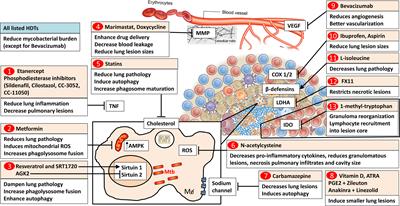REVIEW
Published on 07 Mar 2022
In the Thick of It: Formation of the Tuberculous Granuloma and Its Effects on Host and Therapeutic Responses

doi 10.3389/fimmu.2022.820134
- 37,796 views
- 57 citations
12k
Total downloads
68k
Total views and downloads
REVIEW
Published on 07 Mar 2022

ORIGINAL RESEARCH
Published on 27 Jan 2022

REVIEW
Published on 20 Oct 2021

ORIGINAL RESEARCH
Published on 05 Oct 2021

ORIGINAL RESEARCH
Published on 17 Sep 2021

ORIGINAL RESEARCH
Published on 15 Sep 2021
